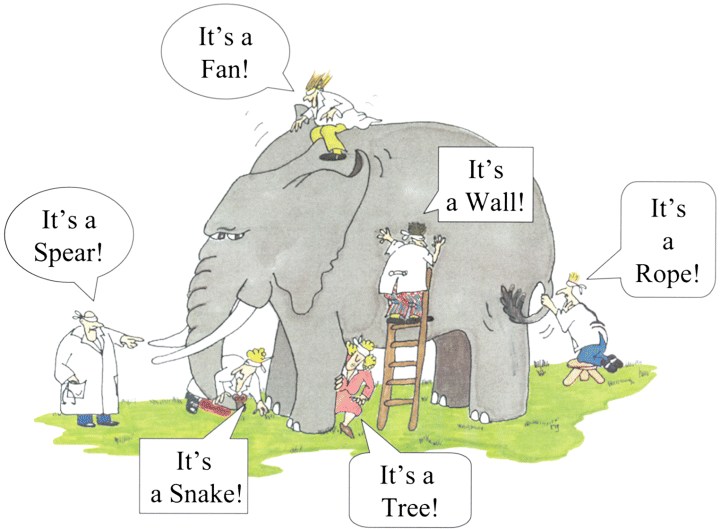I don't know where you get stuff like this from. Maybe you don't read much, and maybe your attendings didn't read much (though I don't know how you'd know how much they were reading). But on what are you basing your assessment that psychiatrists as a whole don't read as much as other medical specialties?
Of course I know there are psychiatrists that read, but I based my comment on the fact that in order to pass the psych boards, you don't have to know as many facts or as much basic science as you would to pass, say, the derm, or pathology, or even the neuro boards. I found the psych boards to be much easier than any of the USMLEs, too. There was very little on the molecular level. The psychosocial topics were not exactly delved into in a way that was intellectually deep. (It was Freud-lite, at most.) I also didn't have to study much for the PRITES, or to pass my residency rotations, and I don't know anyone who did, really. Almost all my learning was experiential. At no point was there a seminal textbook or article whose content would have been essential for me to know in order to graduate or pass the boards.
I also noticed that I had to do a lot more reading on my medicine months than on my psych rotations. During residency I did an ICU rotation, where the attending brought in an article every Monday, and then on Wednesday, he would randomly ask one of us present the methodology and relate the findings to specific patients we were seeing. By examining the methodology I learned a lot about the pathophysiology, diagnosis and treatment of medical illnesses. Of course, when you have diagnostic tools and measurable markers, and when you have some basic existing known pathophysiology, you can design a much greater variety of research studies than when you don't. When you can discuss the findings in relation to your own patients, it makes the lessons of the article stick. What was great was that this level of research was being presented to us, mere residents.
By contract, I never once had a psych attending on a rotation dissect an article's methodology. We read articles, and we discussed them generally and might gain a clinical pearl or two, but it was never analytical and never changed patient care. We had a journal club that was more analytical, but the residents chose the articles they wanted to present, and were never forced to present something new or difficult. We discussed the methodologies of some RTCs in didactics. But unless you're at the cutting edge of research in psychiatry yourself, you really don't need to know very much at the molecular level, or be able to discuss research design beyond RTCs, even during the hardest residency rotations. There was never a formal standard for how to choose or analyze what we were reading. So my standard was, is, and always will be what I learned on my ICU rotation.
Now that I am out of residency, it is up to me to read on my own. I don't read as much as I should, but I have an excuse, which is that I'm leaving the field. There are some interesting articles in the AJP, but when was the last time an article - or even a concept - came along that every psychiatrist HAS to know in order to stay up to date in practice?
At this point in time, we can't make psychiatric diagnoses that are verifiable with lab/imaging/pathology testing. And yet we have psychiatric patients that come to us and need treatment. So what do you propose we do?
The DSM fills this hole. It doesn't pretend to be perfect or to represent actual diseases. What it does is allow us to communicate (with each other, with insurance companies, with patients). I think when you recognize the DSM for what it really is, it serves that role rather well.
So would you think it was ok if every other medical field got rid of their textbooks, and used the ICD-10 to actually make their diagnoses? If you needed eye surgery, is it ok with you that your ophthalmologist only knows a listing of eye diseases and has a checklist of their symptoms, but has no clue how what causes them or whether your diagnosis is actually correct? If they threw out their instruments, would you still trust them?
I propose that we stop lying to patients, and to the public, by telling people that they have "disorders" which are mere constructs of a guidebook that is designed by psychometricians and promoted by committees of our guild organization. Why not use Kaplan & Saddock, or some other textbook instead, or create a new one? One that doesn't "change over" every few years, but rather incorporates historical knowledge and theories with more modern perspectives from the sciences and psychology, where both "biological" and "psychodynamic" psychiatry can both have a voice? Where medicine and neurology are incorporated as well?
I would also propose that we devote far, far more resources to research. A two-year research stint could be mandatory at all but a few residency programs, for example. ENT has something like that - they have 5 and 7 year programs. Entry into psychiatry could be made much harder, with the goal of recruiting people who will lead the field forward. If the field has to shrink down for awhile to achieve this, I think it's worth it.
As far as what I'd say to patients who need treatment? If only I COULD! I'd tell them they're out of luck! They're alive in an era where we have no great tools, and almost no knowledge, only a tiny bit more than we had even 50 years ago. I'd encourage therapy, and tell them that based on their "symptoms" we can try a few medications, but I can't make any promises.

